Don't wanna be here? Send us removal request.
Link
0 notes
Photo

0 notes
Text
RECOVERY ACTIONS HAVE EXPIRY DATES
Many people come through our treatment centre and believe that the work they put in here is enough and that the work they put in here is going to carry them for the rest of their lives. This is a dangerous myth and one that could lead many to relapse. Like the title states, Actions in recovery have expiry dates and what we mean by this is that the last counselling session you had, has a “half-life” of about a day. That Just for Today reading you did this morning can set you on the right path for the day but still it’s not enough to keep you clean and sober for the rest of your life.
If you understand the fundamentals of early recovery you’d understand that to convince yourself that using or drinking is clever idea and won’t hurt anyone is a simple task. “no-one will know”, “just this one time” and then my personal favourite, “this time will be different” are all slogans addicts in early recovery on the road to relapse use. There is no neighbourhood more dangerous than an addict in early recovery left to his/her own devices for extended periods of time. Another fundamental principal of early recovery is powerlessness, just because I’ve written out the theory of step one does not necessarily mean I grasp the principal of what that step should offer. If you find yourself, alone with the means to use your drug of choice and you are bargaining ‘should I use or should I not use’ you are in a seriously dangerous situation that in my opinion will end in your power of choice diminishing and eventually lead to relapse. The solution here is to remember the principal we are talking about, powerlessness. Asking for help is imperative in this situation, remembering that reaching out means that you care enough about yourself and your recovery to make the right decisions.
I believe what most people get wrong in these early days sounds like this, they don’t view recovery as a lifestyle, a new culture to take part in. They keep life and recovery separate and eventually allow the “life” side to take priority smothering out any hope of recovery surviving, this might take a year or 3 weeks but eventually people lose sight of what’s truly important. The actions we put in daily last for that day, maybe more. But one thing I feel sure about is that without recovery becoming a lifestyle, the chances of living in long term recovery get smaller. Time and life become the enemy, we can only deal with what we are willing to face and being able to see these simple but powerful facts could be the deciding factor in your process.
I will leave you with a quote from the Big Book of Alcoholics Anonymous,
‘It is easy to let up on the spiritual program of action and rest on our laurels. We are headed for trouble if we do, for alcohol is a subtle foe. We are not cured of alcoholism. What we really have is a daily reprieve contingent on the maintenance of our spiritual condition. Every day is a day when we must carry the vision of God’s will into all of our activities. “How can I best serve Thee – Thy will (not mine) be done.” These are thoughts which must go with us constantly. We can exercise our will power along this line all we wish. It is the proper use of the will.’
0 notes
Photo

0 notes
Link
0 notes
Photo
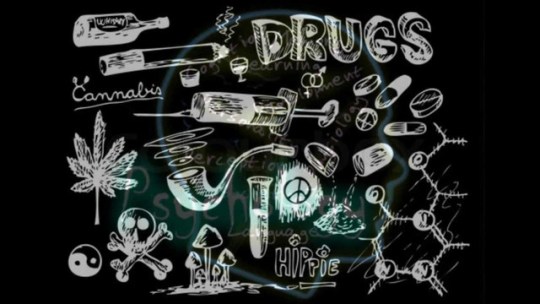
#Bethesda recovery centre#drug addiction#substance abuse#drug addiction counselling#bethesda addiction rehabilitation center
0 notes
Link
https://www.bethesda4recovery.com/substance-abuse-treatments
0 notes
Text
PRINCIPALS OF ADJUSTMENT
These are only a few of the Principals of Adjustment, the list and lessons we learn in recovery are plentiful. Please feel free to comment below on what you might have learnt in recovery. Allowing struggle. There is myth in early recovery that if you are struggling you not in recovery or you going to relapse. Holding up a front that you are doing well when you’re not, is dishonest. The people who matter will appreciate your struggle. Struggle is a big part of the process, working through it promotes growth and understanding.
Open-mindedness. Most people have an idea of what life is going to be like when they get back home, the expectations can be disappointing and damaging. Concrete ideas are dangerous and should be left alone. The open-mindedness we seek in the program filters into our lives in more ways than just in the steps. Life changes and with that we need to change, attempting to resist change creates a dynamic for relapse and resentment. Stay open and remember you are not in control.
Willingness. There is a subtle dynamic that is detrimental to recovery and that is resistance. Resistance comes in many forms, the one we are talking about here is slight. “Statements like I don’t feel like going to my home meeting” or “I don’t need to speak to my sponsor everyday” are signs of resistance. Here is the catch, you can miss that meeting, you might not call your sponsor and nothing detrimental will happen, straight away that is. But 3 months down the line, your home group is no longer your home group, you are avoiding certain meetings because your ex-sponsor will be there. The slope is slippery and most who begin the fall, don’t stop until it’s too late.
Expectations. We have seen many leave treatment with false expectations.
Statements like:
Everyone will trust me now that I’m sober
My family need to understand me
Everyone and everything must change now that I’m clean/sober
Life is going to be easy
Everyone will welcome me back with open arms
We think that because addiction is a selfish condition that the focus on self doesn’t necessarily leave, the recovery expectations are usually self-centred and in some ways the selfishness is important because the focus on recovery needs to come first but it’s a thin line when you are expecting others and the world to change because you are now sober. Resentment, anger and disappointment will feature in your early recovery if you don’t have realistic expectations of what early recovery life will be like. Again, be open to change, approach life with humility. Don’t say sorry and expect thing to go back to normal, act sorry, make right with your behaviour. Allow mistakes, grow, change and feel free. The greatest gift of recovery is the new freedom we experience.
#drug addiction#Substance abuse in south africa#bethesda addiction rehabilitation center#principals of adjustment
0 notes
Photo
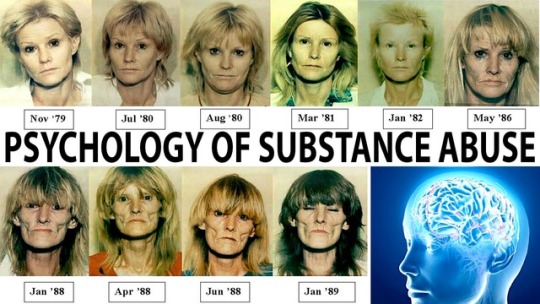
#Drug abuse#drug addiction#drug rehabilitation centre#Bethesda recovery centre#drug addiction counselling#addiction counselling.
0 notes
Link
0 notes
Link
#bethesda recovery centre#drug rehabilitation centre#alcohol abuse#substance abuse#addiction counselling.
0 notes
Photo

#bethesda recovery centre#drug rehabilitation centre#substance abuse#alcohol abuse#addiction counselling.
0 notes
Text
ENABLING
Am I part of the problem? How to stop enabling addiction Part of the problem with enabling is that the behaviors feel so much like help. Learn to identify three (3) enabling behaviors here. Then, we invite your questions or messages about how to quit enabling an addict at the end.
How To Stop Enabling Addiction?
No one who has a loved one with a substance abuse problem wants them to suffer. No one wants a person they care about to be in pain, to descend into the dysfunction of addiction, to lose their livelihood, their family, their life.
How many times have you heard someone say, “I would do anything to help them?”
We protect, we cover, we shelter, we defend and we do so in the name of loving and caring. The problem is that the very things we are doing to help someone, may be things that are enabling the addiction and keeping them from getting well. These may also be things that we are doing because it is more comfortable for us than dealing with the facts of the situation – and it we truly want someone to get well, sometimes we have to get worse first!
So, How Do You Know If You’re An Enabler?
How do you know if you are enabling someone’s substance abuse? We may engage in a lot of behaviors that we think are helpful, or that we are told are necessary but if you start to dig deeper into what that action is all about you find it perpetuating or masking the problem – not solving it!
3 Tips To Identifying Enabling
Here are three tips to help identify enabling behaviors and signs of an enabler. But take hope! You’ll also find alternatives to truly help improve the situation throughout the text!
1. Interfering
It may seem like pouring out the alcohol, hiding the car keys, or throwing away the pills is the best way to keep your loved one from using. It will certainly force them to get more creative about where they keep their substance of choice and what lies they have to craft to hide their behavior. What is won’t do is cure them of their addiction, or convince them that what they are doing is wrong or harmful.
If their behavior is going to create a dangerous situation for you then you have to make the choice to keep yourself safe, interfering with how they engage in their addiction just provides opportunities for them to get smarter about how they use and you are teaching them how to be a better addict!
2. Hiding And Lying
Do you cover up for your partner? Do you make excuses for their behavior? Are you doing this for you or for them? Maybe you tell yourself I have to cover for them at work otherwise they will lose their job, then we will lose our house, etc. But deep inside, the true motivation may be fear of change.
In reality, you are helping them hide their behavior for your convenience, and you are helping them carry-on without having to deal with the reality of the situation. Maybe you are going to have to move, maybe you are going to have to ask for help and tell people what is going on, maybe you won’t be able to stay with this person anymore. Those are all uncomfortable situations, and they are all consequences of being involved with an addict. You have to be willing to confront the reality of a situation for everyone involved in order to address whatever that situation is.
3. Compensating For The Behavior
Money, food, computers, cars – do you give these to someone with a substance abuse problem? How many times do you give someone a computer because they have to have a computer to find a job, and they have to have a job to get sober, but they keep relapsing, selling the computer for drugs and staying in the cycle? How many times do you buy a new car for someone who keeps crashing under the influence? How much money do you give knowing that it won’t be used for rent?
None of us want the people we love to be homeless, to be hungry. We don’t want them to suffer, but when we protect them from experiencing the suffering they are in we take away the opportunity for them to make a decision about changing!
Give An Addict Room To Take Responsibility
REMEMBER: Enabling an addict does not help!
Enabling is really about preventing someone for having to take responsibility for themselves, and whether it is done with good or bad intentions it prevents the other person from fully living their own life. Moving out of enabling behaviors and into a relationship where you let someone experience the natural consequences of their choices isn’t easy, and often it can make it seem like things are much worse. But only if someone experiences for themselves the desire to do something different will there ever be a change, and that experience can’t come if we prevent our loved ones from having it!
Are You An Enabler?
Do the above scenarios sound close to home? Please leave us a message in the comments section below and we’ll do our best to respond to you personally and promptly. We can help refer you to support services, treatment, or the help that you need. Or, we’ll just lend an ear.
0 notes
Photo
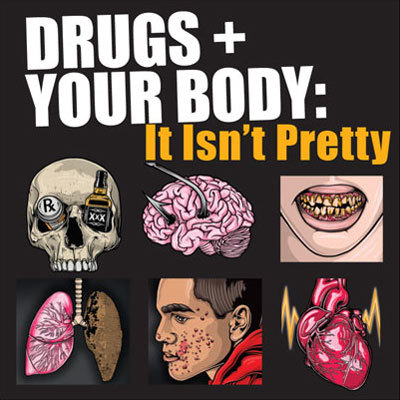
0 notes
Link
0 notes
Photo
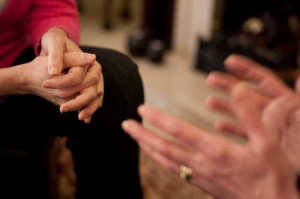
Drug Addiction Counselling
0 notes
Photo
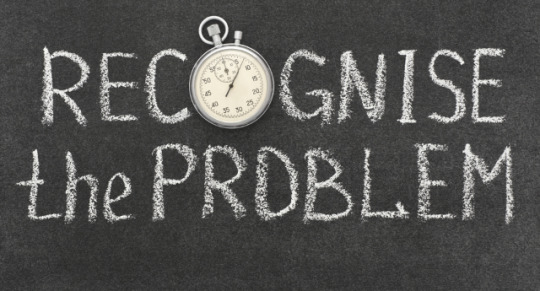
0 notes